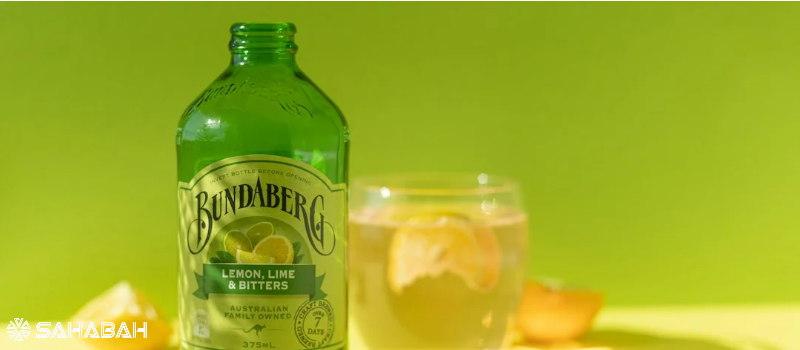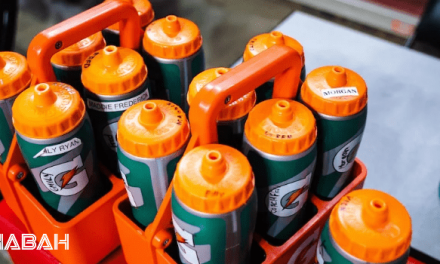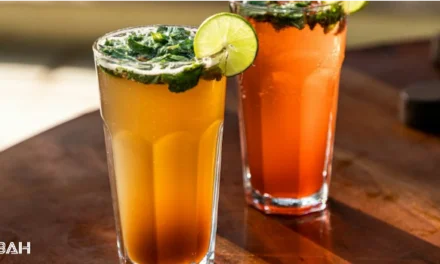Bundaberg is an iconic beverage company internationally loved for its lip-smacking ginger beer, root beer and other flavorful soft drinks. But as a halal consumer, you may be wondering: are Bundaberg’s drinks actually halal?
There are many intricate factors to analyze regarding Bundaberg’s potential halal status, from its brewing processes to alcohol content thresholds. This comprehensive article will uncover everything you need to know to determine if this quintessential Aussie brand complies with Islamic dietary law.
Defining “Halal”: Essential Guidelines for Permissible Beverages
For food or drink to be deemed halal, it must align with Islamic religious standards for permissible consumption. Several key criteria determine if a beverage can qualify:
Alcohol Content Regulations
Alcohol itself is classified haram, or forbidden, within Muslim dietary guidelines. Yet many Islamic certification bodies allow trace alcohol amounts under 0.5% in beverages if from natural fermentation.
This contrasts the strict ruling of some scholars arguing any alcohol instantly negates halal compliance. But minor remnants ≤0.5% ABV are often tolerated.
Assessment of Ingredients
All ingredients within a halal-certified beverage must also meet Islamic standards. This prohibits:
- Pork, blood or improperly slaughtered meat/meat-derivatives – Only meat slaughtered through exact religious specifications is allowed.
- Alcohol-infused flavorings – Vanilla extracts and natural flavor additives cannot contain alcohol.
- Gelatin – The thickening agent gelatin must derive from halal slaughtered bovine sources, not standard pig-derived gelatin.
- L-cysteine – Cannot derive from human hair or feathers, which some brands use. Non-animal and plant-based L-cysteine is permissible.
So every single component requires vetting.
Freedom from Cross-Contamination
Even if all ingredients check out, the risk of cross-contamination with haram substances during storage, transport or manufacturing could still exclude a drink from halal standards.
Meticulous processes preventing contact with anything impure are essential, alongside thorough equipment cleansing protocols between production cycles.
Meeting all the above allows brands to credibly market themselves as “halal suitable” or pursue formal halal certification from accredited agencies like:
- Halal Food Authority Australia
- Australian Federation of Islamic Councils
- Supreme Islamic Council of Halal Meat in Australia INC
This authoritative third-party assessment offers Muslim consumers definitive proof of a product’s permissibility and adherence to Quranic principles.
So now that we’ve clarified precisely what renders a drink definitively halal, let’s analyze if Bundaberg’s offerings make the grade…
Are Any Bundaberg Products Officially Halal Certified?
At this current point in time, Bundaberg does not promote any of their beverages as certified halal. None display an accredited halal logo nor claim to meet certification benchmarks on packaging or in marketing materials.
However, for select drinks within their broad product range, the manufacturing processes and ingredients suggest likely alignment with halal standards from a technical perspective. Key facets that indicate possible permissibility include:
- Non-Alcoholic – All of Bundaberg’s carbonated brewed sodas are labelled as 0.0% alcohol.
- Ingredients – No apparent use of alcohol extracts, pork, improper meat or other evidently haram components.
- Processes – Flavored from natural sources like ginger, fruits, sugar, spices rather than artificial additives.
So while Bundaberg cannot claim definitive halal compliance without third-party certification, these aspects are reassuring indicators that several of their regular sodas may qualify under Islamic guidelines.
But further in-depth analysis is required, especially scrutinizing alcohol content amidst the company’s recurring “naturally brewed” branding tagline…
Investigating Alcohol Content in Bundaberg’s “Naturally Brewed” Beverages
The repeated use of terms like “brew” and “naturally brewed” on Bundaberg products gives many Muslim consumers pause regarding potential alcohol content.
On Bundaberg’s website, they highlight their process uses natural yeasts that feed on fruit sugars. This yeast then converts the sugars into alcohol and CO2 during initial fermentation stages.
They state this brewing process leaves “minute residual traces of alcohol” before they heat products to stop fermentation. Bundaberg justifies these traces by noting Australian Food Standards allow up to 0.5% alcohol in non-alcoholic beverages.
Yet some Islamic certification groups argue the halal standard should sit at 0.0% alcohol, not just the legal limit.
So what level of traces actually remain in Bundaberg’s drinks? And could this relegate them to haram status for observant Muslim consumers?
Investigative Findings into Bundaberg’s Alcohol Content
An investigation into previous public disclosures found enlightening information:
- Bundaberg previously stated their ginger beer contains an “average alcohol reading of 0.2% before heating”.
- For drinks like their root beer, current references simply state it “contains no alcohol”, implying none remains.
So it appears minute alcohol traces definitely persist through the initial fermentation and carbonation phases but heating to over 70°C largely evaporates this prior to bottling and refrigeration stops any further fermentation.
While Bundaberg did not disclose actual post-heating remnants, these residual alcohol amounts likely fall within limits considered permissible by some halal certifying bodies if below 0.5%. But further transparency directly from the company would enable definitive rulings one way or another.
Scholarly Perspectives on Alcohol Traces in Halal Beverages
Seeking clarity from qualified Islamic experts and scholars helped delineate the debate around remnant alcohol thresholds.
Opinions remain divided within the Muslim community regarding acceptable limits after the fermentation process.
Some academics argued even the most sensitive laboratory equipment today cannot precisely verify absolute 0.0% alcohol content in something described as “brewed”.
Yet they grudgingly tolerate bottled drinks with ≤0.5% remnants from natural fermentation, considering these equivalent to the minute traces found in fruit juices and other Islamic-approved beverages.
Contrastingly, stricter interpretations state categorically that any alcoholic essence instantly negates halal status. But these dissenting voices also acknowledged complete absence of alcohol is nearly impossible to verify scientifically after a beverage is exposed to natural yeasts during manufacturing.
So in summary of scholarly stances:
- Liberal – alcoholic remnants ≤0.5% considered tolerable if from natural fermentation without added spirits.
- Conservative – any alcoholic essence deemed haram, even at trace levels. Purity impossible to prove.
Without unambiguous evidence of precise post-production alcohol readings, this remains a grey area subject to the variable of personal interpretation within Islamic law.
Critical Considerations Beyond Alcohol Content
Looking beyond alcohol, a product’s remaining ingredients and manufacturing processes also require examination to make a decisive halal determination.
On both fronts, Bundaberg’s brewed sodas appear compliant at face value:
Ingredients Analysis
Browsing Bundaberg’s website and product labels shows their flavored drinks primarily utilize:
- Sugar – Cane sugar or glucose syrups.
- Carbonated Water
- Flavouring – Natural herbs, roots, fruit extracts like ginger, sarsaparilla, cinnamon, lemons etc.
- Citric acid
- Preservative 220 – Sulfur dioxide.
With no apparent animal-based or alcohol-infused additives like carmine pigment or rum extract, ingredients seem kosher.
The wildcard remains “natural flavors” – what exactly are these sourced from? Potentially non-halal unless specifically vetted. But certifiers could investigate this.
Production Processes & Hygiene Analysis
In terms of processes, Bundaberg summarizes their workflow:
- Natural ingredients + yeasts → Fermented
- Heated to 70°C stop fermentation
- Filtered then Bottled
Without visibility into the nitty-gritty details of equipment and hygiene practices, the risk of cross-contamination cannot be fully excluded.
If all staging from fermentation through bottling shared integrated production lines, traces of alcoholic base liquids could taint other products. Proper sterilization between full-alcoholic and non-alcoholic runs would be essential.
Additionally, some beverage clarity and stabilization agents utilized during filtration contain animal derivatives like fish bladders or pork enzymes. Without transparency on processing aids, uncertainty remains.
So in summary – from straightforward ingredients Bundaberg passes preliminarily. But the processing gaps mean contamination risks may still lurk beneath the surface without further disclosure.
Verdict: Are Bundaberg Beverages Halal?
Evaluating all available evidence, here is the final ruling on Bundaberg’s halal eligibility:
Ambiguous – Potentially Permissible Under Certain Interpretations But Not Guaranteed
While Bundaberg cannot claim definitive halal certification currently, analysis suggests their non-alcoholic brewed sodas likely meet technical criteria for Islamic permissibility from an ingredients perspective.
Yet uncertainty persists around remnants of alcohol content for conservative consumers, alongside transparency gaps surrounding potential cross-contamination factors.
So most Islamic religious authorities would be unlikely to conclusively deem Bundaberg’s offerings unconditionally halal.
Without explicit certification meeting accredited benchmarks, Bundaberg remains in the grey area for now – acceptable only for followers subscribing to more flexible interpretations of dietary doctrine.
Certified Halal Beverage Alternatives
Given the ambiguities fringing Bundaberg’s halal eligibility, many Muslim consumers prefer guaranteed certified options when seeking permissible refreshment.
Thankfully, alternatives abound offering definitively halal-labelled brewed ginger beers, root beers and other soda varieties:
- OTWO Ginger Beer – Halal-certified Australian ginger beer selling online nationwide.
- Goya Malta – Iconic malted soft drink from Caribbean & Latin America carrying halal symbol. Find at ethnic grocers.
- Irn-Bru – Funky Scottish fizzy drink labelled suitable for Muslims by manufacturer A.G. Barr. Limited Australian stockists.
- Zam Zam Cola – UK-made Islamic-branded cola alternative with halal certification.
- Halal Import Foods – Online store selling imported halal groceries including specialty American & global sodas.
- Mindful Mist – Queensland startup producing certified halal ginger beer, lemonade and cola made from raw bush ingredients.
Finding definitively halal-approved carbonated drinks in Australia may require diligent label-reading across beverage aisles. But multiplying options now exist to quench religious thirsts.
Specialty outlets like Muslim grocers, halal exporters and direct-to-consumer startups provide easy access for conscientious consumers seeking peace of mind in soft drink selection.
Key Takeaways: Decoding Bundaberg’s Debatable Halal Status
This comprehensive dissection of Bundaberg’s manufacturing processes and ingredients uncovered insights including:
- Not Certified – Bundaberg currently lacks accredited halal approval.
- Ingredients Likely Halal – No blatant haram components found. Natural flavors need auditing.
- Alcohol Traces – Evidence confirms residual alcohol exists post-fermentation pre-heat treatment at potentially <0.5% levels.
- Verification Gaps – Questions remain around potential cross-contamination risks without transparency.
In summary, aspects of Bundaberg’s production show promise. But without more public transparency or formal certification, definitive halal permissibility remains subjective depending on personal interpretations of acceptable alcohol thresholds and manufacturing practice assurances.
Bundaberg offer an iconic Australian brand with natural brewed sodas likely aligning technically with Islamic principles in many ways. Yet for consumers and certifiers requiring unconditional guarantees of purity, their debatable status leaves an aftertaste of uncertainty.
Hopefully this comprehensive analysis distilled clarity on the fascinating intricacies and ambiguities determining halal eligibility for mass-marketed beverage brands like Bundaberg.
Frequently Asked Questions: Is Bundaberg Halal?
Bundaberg brewed drinks, including their famous ginger beer and apple cider brewed soft drink, are considered halal. They do not contain any ingredients that are haraam (forbidden) in Islam.
Q: What is Bundaberg ginger beer?
A: Bundaberg ginger beer is a non-alcoholic beverage made from naturally brewed ginger root. It is a popular soft drink known for its distinct ginger flavor.
Is Bundaberg apple cider brewed soft drink halal?
Yes, Bundaberg apple cider brewed soft drink is halal. It is a non-alcoholic beverage made from brewed apples, and it does not contain any haraam ingredients.
Are all Bundaberg brewed drinks naturally brewed products halal?
Yes, all Bundaberg brewed drinks are naturally brewed products and are considered halal. The brewing process does not involve any haraam ingredients.
Can non-alcoholic ginger beer intoxicate?
No, non-alcoholic ginger beer does not have the ability to intoxicate. It contains a very low percentage of alcohol, usually less than 0.5%, which is not enough to cause intoxication.
Where can I find information regarding the halal status of Bundaberg drinks?
You can find information regarding the halal status of Bundaberg drinks by visiting their official website or contacting their customer service. They should be able to provide you with the necessary information.
Is Bundaberg ginger beer considered non-alcoholic?
Yes, Bundaberg ginger beer is considered a non-alcoholic beverage. It is labeled as a non-alcoholic drink and contains a very low percentage of alcohol, which is well below the legal limit.





